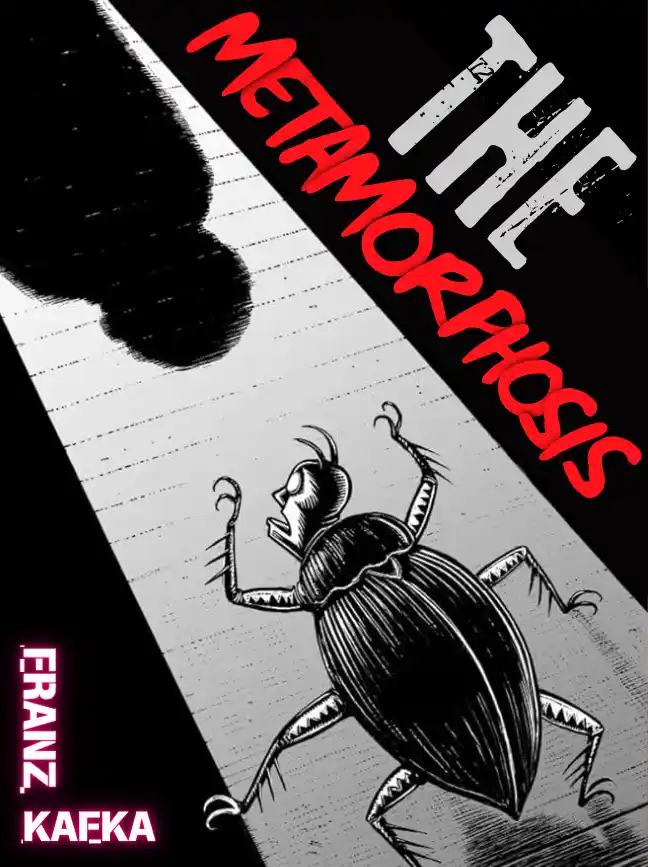ALIZEH HAD ONLY JUST PULLED open the door to her closet when she felt it, felt him as if she’d pushed her arms through the sleeves of a winter coat. She hesitated, heart pounding, and stood framed in the doorway.
Foolish.
Alizeh shook her head to clear it. She was imagining things, and no surprise: she was in desperate need of sleep. After sweeping the hearth, she’d had to scrub clean her sooty hands and face, too, and it had all taken much longer than she’d hoped; her weary mind could hardly be held responsible for its delirious thoughts at this hour.
With a sigh, Alizeh dipped a single foot into the inky depths of her room, feeling blindly for the match and candle she kept always near the door. Mrs. Amina had not allowed Alizeh a second taper to carry upstairs in the evenings, for she could neither fathom the indulgence nor the possibility that the girl might still be working long after the gas lamps had been extinguished. Even so, the housekeeper’s lack of imagination did nothing to alter the facts as they were: this high up in so large an estate it was near impossible for distant light to penetrate. Save the occasional slant of the moon through a mingy corridor window, the attic presented opaque in the night; black as tar.
Were it not for the glimmer of the night sky to help her navigate the many flights to her closet, Alizeh might not have found her way, for she experienced a fear so paralyzing in the company of perfect darkness that, when faced with such a fate, she held an illogical preference for death.
Her single candle quickly found, the sought after match was promptly struck, a tear of air and the wick lit. A warm glow illuminated a sphere in the center of her room, and for the first time that day, Alizeh relaxed.
Quietly she pulled closed the closet door behind her, stepping fully into a room hardly big enough to hold her cot.
Just so, she loved it.
She’d scrubbed the filthy closet until her knuckles had bled, until her knees had throbbed. In these ancient, beautiful estates, most everything was once built to perfection, and buried under layers of mold, cobwebs, and caked-on grime, Alizeh had discovered elegant herringbone floors, solid wood beams in the ceiling. When she’d finished with it, the room positively gleamed.
Mrs. Amina had not, naturally, been to visit the old storage closet since it’d been handed over to the help, but Alizeh often wondered what the
housekeeper might say if she saw the space now, for the room was unrecognizable. But then, Alizeh had long ago learned to be resourceful.
She removed her snoda, unwinding the delicate sheet of tulle from around her eyes. The silk was required of all those who worked in service, the mask marking its wearer as a member of the lower classes. The textile was designed for hard work, woven loosely enough to blur her features without obscuring necessary vision. Alizeh had chosen this profession with great forethought, and clung every day to the anonymity her position provided, rarely removing her snoda even outside of her room; for though most people did not understand the strangeness they saw in her eyes, she feared that one day the wrong person might.
She breathed deeply now, pressing the tips of her fingers against her cheeks and temples, gently massaging the face she’d not seen in what felt like years. Alizeh did not own a looking glass, and her occasional glances at the mirrors in Baz House revealed only the bottom third of her face: lips, chin, the column of her neck. She was otherwise a faceless servant, one of dozens, and had only vague memories of what she looked like—or what she’d once been told she looked like. It was the whisper of her mother’s voice in her ear, the feel of her father’s calloused hand against her cheek.
You are the finest of us all, he’d once said.
Alizeh closed her mind to the memory as she took off her shoes, set the boots in their corner. Over the years, Alizeh had collected enough scraps from old commissions to stitch herself the quilt and matching pillow currently laid atop her mattress. Her clothes she hung from old nails wrapped meticulously in colorful thread; all other personal affects she’d arranged inside an apple crate she’d found discarded in one of the chicken coops.
She rolled off her stockings now and hung them—to air them out—from a taut bit of twine. Her dress went to one of the colorful hooks, her corset to another, her snoda to the last. Everything Alizeh owned, everything she touched, was clean and orderly, for she had learned long ago that when a home was not found, it was forged; indeed it could be fashioned even from nothing.
Clad only in her shift, she yawned, yawned as she sat on her cot, as the mattress sank, as she pulled the pins from her hair. The day—and her long, heavy curls—crashed down around her shoulders.
Her thoughts had begun to slur.
With great reluctance she blew out the candle, pulled her legs against her chest, and fell over like a poorly weighted insect. The illogic of her phobia was consistent only in perplexing her, for when she was abed and her eyes closed, Alizeh imagined she could more easily conquer the dark, and even as she trembled with a familiar chill, she succumbed quickly to sleep. She reached for her soft quilt and drew it up over her shoulders, trying not to think about how cold she was, trying not to think at all. In fact she shivered so violently she hardly noticed when he sat down, his weight depressing the mattress at the foot of her bed.
Alizeh bit back a scream.
Her eyes flew open, tired pupils fighting to widen their aperture. Frantically, Alizeh patted down her quilt, her pillow, her threadbare mattress. There was no body on her bed. No one in her room.
Had she been hallucinating? She fumbled for her candle and dropped it, her hands shaking.
Surely, she’d been dreaming.
The mattress groaned—the weight shifting—and Alizeh experienced a fear so violent she saw sparks. She pushed backward, knocking her head against the wall, and somehow the pain focused her panic.
A sharp snap and a flame caught between his barely there fingers, illuminated the contours of his face.
Alizeh dared not breathe.
Even in silhouette she couldn’t see him, not properly, but then—it was not his face, but his voice, that had made the devil notorious.
Alizeh knew this better than most.
Seldom did the devil present himself in some approximation of flesh; rare were his clear and memorable communications. Indeed, the creature was not as powerful as his legacy insisted, for he’d been denied the right to speak as another might, doomed forever to hold forth in riddles, and allowed permission only to persuade a person to ruin, never to command.
It was not usual, then, for one to claim an acquaintance with the devil, nor was it with any conviction that a person might speak of his methods, for the presence of such evil was experienced most often only through a provoking of sensation.
Alizeh did not like to be the exception.
Indeed it was with some pain that she acknowledged the circumstances of her birth: that it had been the devil to first offer congratulations at her
cradle, his unwelcome ciphers as inescapable as the wet of rain. Alizeh’s parents had tried, desperately, to banish such a beast from their home, but he had returned again and again, forever embroidering the tapestry of her life with ominous forebodings, in what seemed a promise of destruction she could not outmaneuver.
Even now she felt the devil’s voice, felt it like a breath loosed inside her body, an exhale against her bones.
There once was a man, he whispered.
“No,” she nearly shouted, panicking. “Not another riddle—please—”
There once was a man, he whispered, who bore a snake on each shoulder.
Alizeh clapped both hands over her ears and shook her head; she’d never wanted so badly to cry.
“Please,” she said, “please don’t—” Again:
There once was a man
who bore a snake on each shoulder.
If the snakes were well fed
their master ceased growing older.
Alizeh squeezed her eyes shut, pulled her knees to her chest. He wouldn’t stop. She couldn’t shut him out.
What they ate no one knew, even as the children—
“Please,” she said, begging now. “Please, I don’t want to know—”
What they ate no one knew, even as the children were found
with brains shucked from their skulls, bodies splayed on the ground.
She inhaled sharply and he was gone, gone, the devil’s voice torn free from her bones. The room suddenly shuddered around her, shadows lifting and stretching—and in the warped light a strange, hazy face peered back at her. Alizeh bit her lip so hard she tasted blood.
It was a young man staring at her now, one she did not recognize.
That he was human, Alizeh had no doubt—but something about him seemed different from the others. In the dim light the young man seemed carved not from clay, but marble, his face trapped in hard lines, centered by a soft mouth. The longer she stared at him the harder her heart raced. Was this the man with the snakes? Why did it even matter? Why would she ever believe a single word spoken by the devil?
Ah, but she already knew the answer to the latter.
Alizeh was losing her calm. Her mind screamed at her to look away from the conjured face, screamed that this was all madness—and yet.
Heat crept up her neck.
Alizeh was unaccustomed to staring too long at any face, and this one was violently handsome. He had noble features, all straight lines and hollows, easy arrogance at rest. He tilted his head as he took her in, unflinching as he studied her eyes. All his unwavering attention stoked a forgotten flame inside her, startling her tired mind.
And then, a hand.
His hand, conjured from a curl of darkness. He was looking straight into her eyes when he dragged a vanishing finger across her lips.
She screamed.








